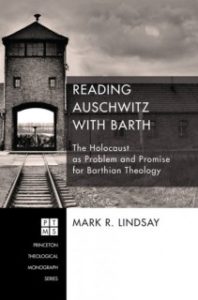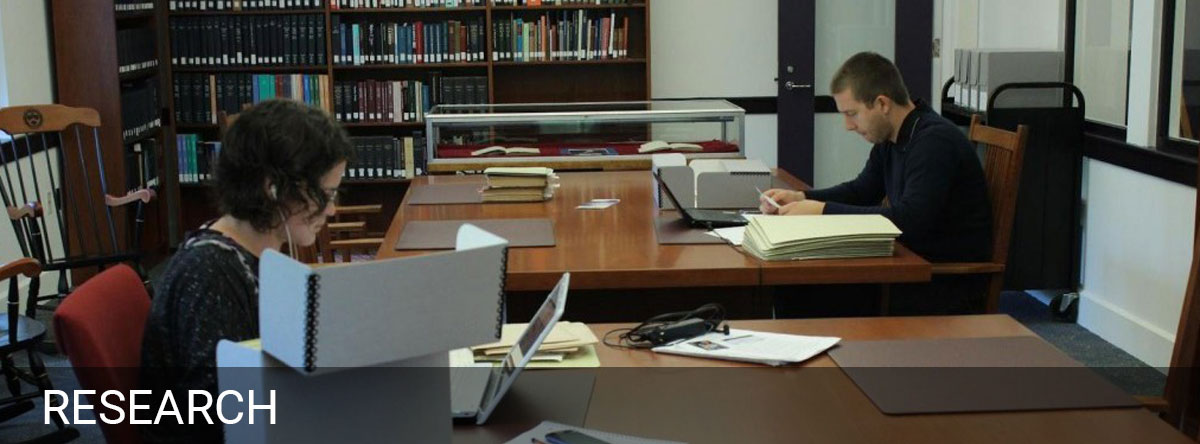 Lindsay, Mark R. Reading Auschwitz with Barth: The Holocaust as Problem and Promise for Barthian Theology (Eugene, OR: Pickwick, 2014), 204 pp. $24.00 (paperback).
Lindsay, Mark R. Reading Auschwitz with Barth: The Holocaust as Problem and Promise for Barthian Theology (Eugene, OR: Pickwick, 2014), 204 pp. $24.00 (paperback).
Reviewed by Amanda MacInnis-Hackney (July 11, 2016)
In his book, Reading Auschwitz with Barth: The Holocaust as Problem and Promise for Barthian Theology, Mark Lindsay asks the question: how is the Holocaust “a determinative event of witness”? (65). Following on the work done in his preceding two volumes, Covenanted Solidarity (2001) and Barth, Israel and Jesus (2007), Lindsay picks up the issue of natural theology and aims to move Christian theology beyond a mere acknowledgement of the event of the Holocaust, by offering instead “a totalizing hermeneutic by which the whole of Christian doctrine and praxis are critiqued and, where necessary, re-stated” (65). Lindsay argues that the Holocaust is not solely an anthropological revelation: that is, it does not just reveal human depravity. Therefore, the key questions for Lindsay include: how can the Holocaust be fit into an understanding of God’s self-revelation? Is the Holocaust in any way revelatory? What about God is revealed in the event of the Holocaust? Lindsay’s thesis is two-fold. First, the Holocaust is an event or “moment of witness” of divine revelation. Second, Lindsay also wants to hold this in tension with Barth’s rejection of natural theology since Barth makes a distinction between events which bear witness to revelation and revelatory events. Therefore, the Holocaust, Lindsay argues, “should be understood – not as an event of revelation as such, but as a testifying event that bears witness to the reality and nature of the revelation and more importantly, to the God to whom that revelation refers” (66).
After surveying modern Jewish and Christian theological responses to the Holocaust in chapters one and two, Lindsay turns to Barth’s “no” to natural theology in chapter three. He argues that Barth’s opposition to natural theology both helped him oppose Nazism, and hindered his ability to understand the theological significance of the Holocaust (67). Lindsay traces the development of Barth’s rejection of natural theology, surveying Barth’s Theologische Existenz heute, Lutherfeir, Für dies Freheit des Evangeliums, and the opening volumes of the Church Dogmatics. He argues that Barth’s methodology is to “do theology as though nothing has happened” which leads to Barth’s insistence on revelation resting solely in God’s self-revelation rather than any type of tradition or event, be it political or religious (78).
In chapter four, Lindsay starts by looking at Barth’s treatment of radical evil in CD III/3, which had been written in the years immediately following the conclusion of WWII, and notes that Barth does not specifically mention the Holocaust in this text even though it was written against the backdrop of the atrocities of the Holocaust. Indeed, as Lindsay notes, “nowhere does Barth make explicit any link between the atrocity of the Shoah and the reality of das Nichtige” (93). Lindsay briefly considers the possibility that Barth’s silence is in keeping with the general silence immediately after the Holocaust, but concludes that the focus needs to be on Barth’s theological methodology, the same methodology which resulted in his adamant “no” to natural theology. Therefore, Lindsay’s argument in this chapter is that “it was Barth’s refusal to countenance the legitimacy of natural theology that rendered him simply unable to posit the Holocaust as an event that demanded to be taken with theological seriousness. The undeniable contextual brilliance of Barth’s theology was, at the same time, its most profound deficiency” (94-95). If Barth does not include the Holocaust in his discussion of radical evil, is there another place in his dogmatic project where the Holocaust could appear? Lindsay turns from CD III/3 to Barth’s discussion in IV/3.1 on the possibility of “other lights” in the secular sphere that can testify or witness to the revelation of Jesus Christ. To test this, Lindsay looks at four criteria: the goodness of the parabolic word, the orientation of the parabolic word to the Word of Life, the fruitfulness of the parabolic word, and the parabolic word and the claim of repentance. Lindsay argues that the Holocaust meets the second and fourth criterion but not the first and third, meaning it does not meet Barth’s definition of a secular parable (114).
In chapter five, Lindsay seeks out another locus for the Holocaust in Barth’s theology, a “theological loophole” as it were (115). By placing Barth in dialogue with Jewish theologian Eliezer Berkovits, Lindsay sees a point of contact, specifically in the dialectical tension of a God who both self-manifests and remains hidden. For Berkovits, this tension is found in the Hester Panim (hiding face) of God. For Barth, this tension is found in his doctrine of revelation, where God both veils and unveils himself. Thus, Lindsay argues, “God within world historical occurrence is, for both Barth and Berkovits, simultaneously ‘hiddenly present’ and ‘presently hidden’” (129). The divergence comes in terms of the specific mention of the Holocaust: Berkovits makes the connection between the hiddenness of God and the Holocaust explicitly, while Barth does not (129). The solution, just like in chapter four, is to turn to Barth’s Christology. Lindsay looks at the theme of the concealment of God in Barth’s commentary on the Apostles’ Creed and in CD IV/1, arguing that in the crucifixion of Christ, “torture, execution, and God’s silent turning away of his face coincide[s] with the most profound moment of his Self-revelation” (134). God is both concealed and revealed in the crucifixion because it “the singular place of God’s absence and presence, of God’s silence and of the Deus Dixit” (135).
In chapter six, Lindsay continues exploring the christocentric foundation of self-revelation in the event of the crucifixion by considering the question of divine suffering. After surveying the historical tradition concerning divine passibility, and briefly referencing the ongoing debate concerning Barth’s doctrine of election and the nature of the Trinity, Lindsay traces Barth’s position on divine passibility from his lectures in the 1920s through to his doctrine of reconciliation. For Barth, Christ’s suffering is not limited to his humanity, but is instead experienced in both his humanity and his divinity. As such, God is passible because Christ’s suffering “is taken into the very heart of the Godhead” (157). Importantly, this suffering cannot be understood apart from the reality of Jesus’ taking on not just human flesh, but specifically Jewish human flesh. It is Barth’s acceptance of the doctrine of passibility and his attentive treatment of theological significance of Christ’s suffering which then “facilitates dialogue with the idea of God’s solidarity in suffering with the Jewish victims of the death camps” (163). Thus, looking at the Holocaust from a Barthian framework, God was indeed present in the suffering and death. This is because in becoming the Word became flesh, the crucified Lord stands in solidarity with humanity, and more specifically with the Jewish people. Therefore, the Christian tradition can understand the Holocaust “as a theologically significant event of witness, to which the church must attend,” without embracing natural theology, because we can, using Barth’s theological framework, “locate within it an event that testifies to what has already been revealed by God about himself” (167).
Lindsay’s latest volume on Barth and Judaism is both an important contribution to existing Barth scholarship and an excellent piece of constructive theology, demonstrating yet another example of the multifaceted flexibility of Barth’s Chalcedonian Christology as a theological framework. While acknowledging the difficulties, omissions and insensitive remarks made by Barth about the Jewish people, Lindsay is right to note that it is not just that the Holocaust challenges Barth’s theology, but at the same time “Barth’s theology itself poses challenges to post-Shoah theology” (164). Therefore, Reading Auschwitz with Barth is an important resource, not just for Barth scholars, but for Christian and Jewish theologians working on issues of post-Holocaust theology, supersessionism, and interreligious cooperation and dialogue.
The views expressed here are strictly those of the author; they do not necessarily represent the views of the Center for Barth Studies or Princeton Theological Seminary.


